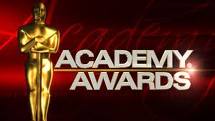 Julie Gray has an interesting entry in her always-interesting blog Just Effing Entertain Me about why she doesn’t watch the Oscars anymore. It kind of stops you in your tracks. Here’s a woman who runs a highly regarded screenwriting contest and who works in the industry. And she doesn’t watch the Oscars? Sacrilege! But I have to say that, after watching this year’s ceremony—every tedious minute from red carpet to good night—I see her point.
Julie Gray has an interesting entry in her always-interesting blog Just Effing Entertain Me about why she doesn’t watch the Oscars anymore. It kind of stops you in your tracks. Here’s a woman who runs a highly regarded screenwriting contest and who works in the industry. And she doesn’t watch the Oscars? Sacrilege! But I have to say that, after watching this year’s ceremony—every tedious minute from red carpet to good night—I see her point.
The Oscar ceremony has always been an overproduced and under-imagined affair—an extended promo for the industry. And that’s been all right because there were moments that caught you by surprise: Sasheen Littlefeather refusing Brando’s Oscar for The Godfather; the streaker running past David Niven, who opined that the man was showing off “all his shortcomings”; Jack Palance doing those one-armed push-ups; any minute of any of Billy Crystal’s performances as host. Yes, my friends, there was a time when it was still possible to be surprised. But that time has passed.
The most potentially surprising moment in last night’s ceremony was Melissa Leo’s dropping of the f-bomb, but that was neatly censored on the fly. And I have to say that, as much as I admire James Franco and Anne Hathaway, I can’t help thinking that actors were chosen to host this year because they’re more biddable than comedians. They’re trained to hit their marks and say their lines and not embarrass anyone.
My wife (and writing partner) and I sometimes print out ballots and compete to see who can guess the most wins. But this year we didn’t touch them. What’s the point? The winner would just be the person who’s best at identifying the predictable choices of mediocre minds. Am I saying Hollywood minds are mediocre? No, no, no! I mean, yes, yes, yes! But they’re no more mediocre and predictable than the minds of the rest of us. Any time a group of people are polled, you’re going to get the lowest common denominator. What was it Thoreau said? “Any man more right than his neighbor is a majority of one.”
Was The King’s Speech really the best movie of the year? Or is it just one more example of Oscar’s tendency to over-praise all things English? A high-born man overcomes his stutter to deliver an important speech without a hitch. Yes, Colin Firth is great at depicting the pain and embarrassment of such an affliction. But is there enough story there? And best director? Really? I mean, really?
While I enjoyed the performances of the best actor winners, especially Christian Bale and Melissa Leo, didn’t they seem over-the-top, especially Natalie Portman’s performance, which was all high school histrionics. It’s sad that Oscar always goes for the loud and over-determined performance instead of the solid, affecting, quieter, and more real performances of actors like Jennifer Lawrence and John Hawkes (Winter’s Bone), Annette Bening, Julianne Moore, and Mark Ruffalo (The Kids Are All Right), and Michelle Williams and Ryan Gosling (Blue Valentine).
But there were at least two well-deserved Oscars of the night. The Social Network won for best editing. In case you haven’t seen it, The Social Network is a movie about typing. And here’s the twist: it’s about typing on a computer keyboard! The editors deserve the win for making typing look sexy and exciting. It’s not. The other deserving win came to Inception for best visual effects, a no-brainer. What’s it about? Visual effects. “No, no,” I hear you say, “it’s about dreams and reality and—“ Actually, it’s about visual effects. Period.
Maybe the Oscar ceremony was never more than one long infomercial for the movie industry, but wasn’t it once livelier, funnier, and more unpredictable? I’m with you, Julie. I’ll check the wins the day after. And I’ll watch whatever flubs and surprises are caught on Youtube. But Oscar, you and I are so done.